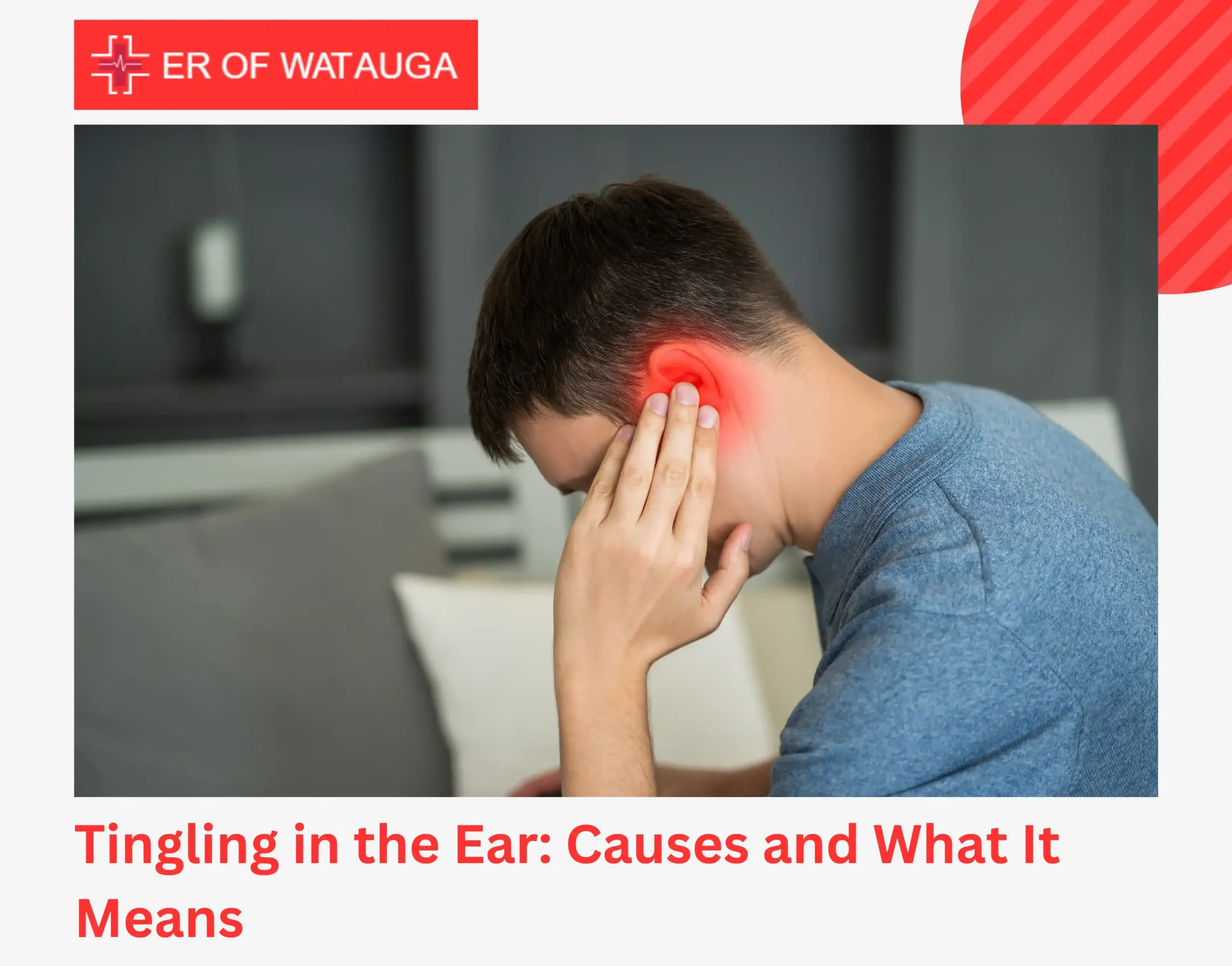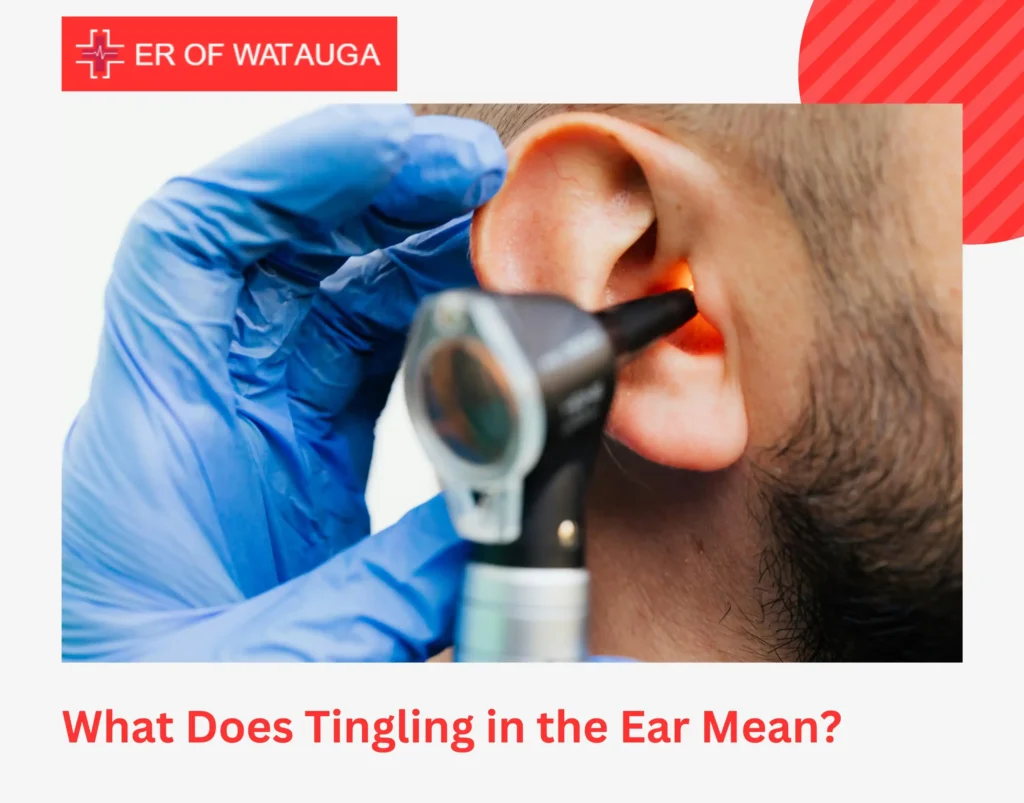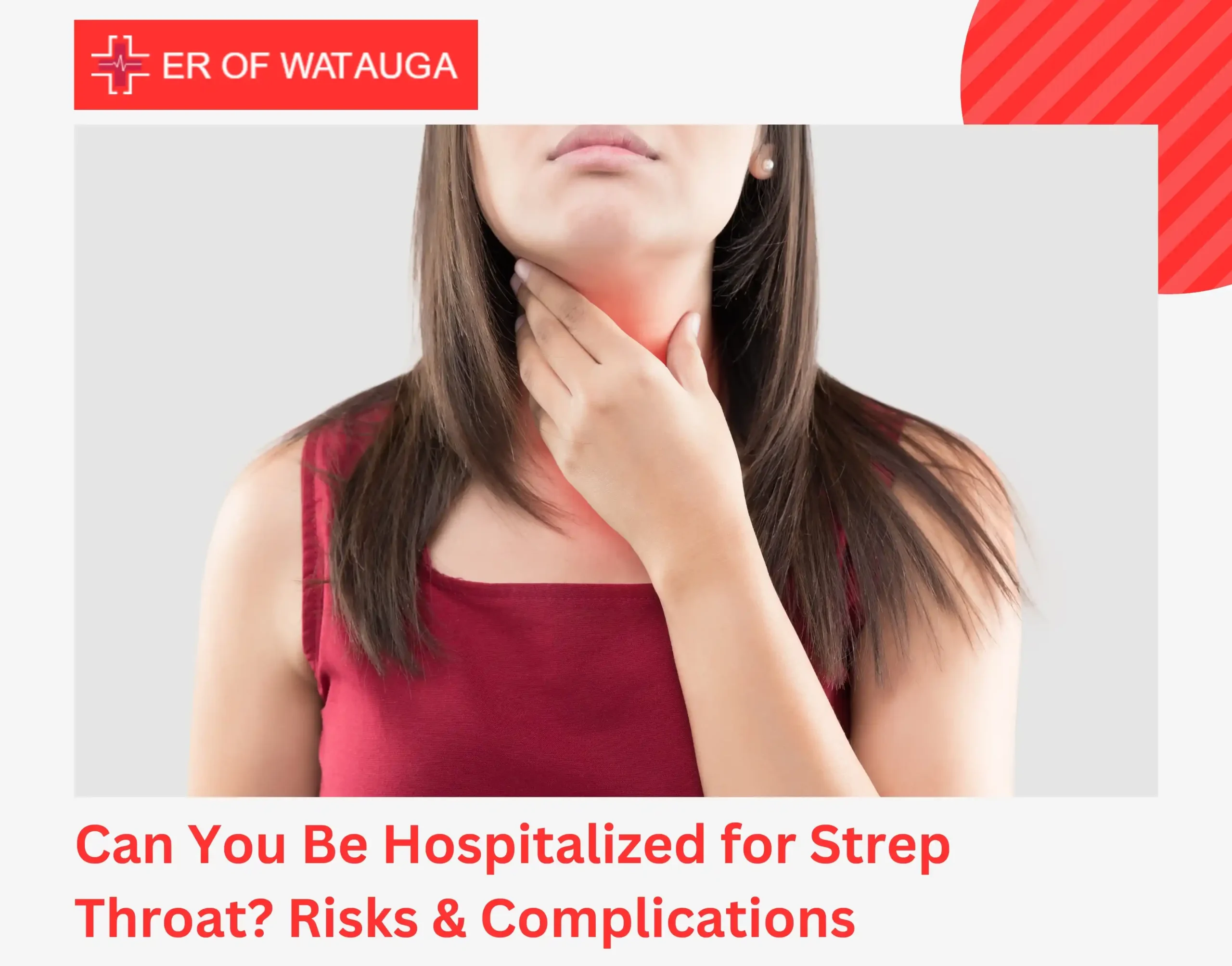A tingling, crawling, or prickling sensation inside your ear may be a sign of an infection or something more serious, such as nerve damage. Left untreated, it can lead to complications such as a ruptured eardrum, facial weakness, or even permanent hearing loss.
You may not feel how bad it’s getting until it’s already done real damage. At that point, it’s harder to treat and takes longer to heal.
Let’s identify the root causes of tingling in the ear and the warning signs. It’ll help you recognize when it’s normal and when it’s serious enough to warrant professional evaluation.
What Does Tingling in the Ear Mean?
People describe ear tingling in different ways. It may feel like:
- A light buzzing or prickling
- Crawling, like something moving inside
- Tiny shocks or pins and needles
- A cold or burning sensation
- A temporary ear numbness
It may happen in just one ear or both. Sometimes, it comes and goes. Other times, it sticks around or worsens with time.
Common Causes of Tingling in the Ear
There are several reasons you may get an infection, inflammation, or nerve damage in the ear that causes tingling. Here are the most common ear tingling causes:
1. Earwax Buildup
When too much earwax collects in the ear canal, it can press on your ear canal and tickle nearby nerves. This pressure may trigger short-lived tingling that resolves on its own.
Note: Don’t try digging ear wax out with cotton swabs. It can make it worse or even damage your ear. A healthcare provider can safely remove it if needed.
2. Colds or Allergies
Sinus pressure can affect ear pressure too. Fluid or mucus buildup around the eustachian tubes may lead to a fluttery, buzzy feeling in the ear. It is also a harmless cause of tingling in the ear that goes away when the cold or allergy clears up.
3. Ear Infections
The middle and inner parts of the ear are more prone to viral or bacterial infections. These infections often lead to a fluid or pus buildup behind the eardrum, creating pressure in the ear. This pressure pushes against tiny nerves in the ear canal or middle ear. Since these nerves are highly sensitive, even slight pressure can cause tingling or a burning sensation.
If the infection isn’t treated early, the pressure can worsen and lead to sharp pain, muffled hearing, or a ruptured eardrum. In some cases, the infection can spread beyond the ear. Here are the signs to watch for:
- Pain or pressure
- Fever
- Swelling
- Fluid draining from the ear
4. Ear Nerve Issues
Our ears are packed with tiny nerves that help carry sound and sensation signals to your brain. If one of those nerves is damaged (by trauma, illness, or a neurological disorder), it can misfire. That misfiring often shows up as tingling, numbness, or buzzing.
Sometimes, the cause is mild and treatable (like pressure from sleeping wrong on your neck). But in more serious cases, nerve damage could be linked to:
- Peripheral neuropathy (common in diabetes)
- Shingles (a viral infection that affects nerves and can show up around the ear)
- Bell’s palsy or multiple sclerosis (neurological conditions that affect facial or auditory nerves)
If a damaged nerve is left untreated it can lead to hearing loss, facial weakness, memory, or cognitive issues. The earlier it’s caught, the better the recovery.
4. Eustachian Tube Dysfunction
This tiny tube connects the middle ear to the back of the throat. If it gets blocked (due to allergies, sinus infections, or pressure changes), it can cause a tickling or tingling in the ear. Other symptoms include:
- Mild hearing loss
- Feeling of fullness
- Dizziness or imbalance
5. Tinnitus
Tingling can sometimes be confused with or occur alongside tinnitus. It’s a condition where you hear sounds that aren’t there (like ringing, buzzing, or clicking). Tinnitus often signals an issue with the auditory nerve or inner ear. If tinnitus is the cause, your tingling will get worse by:
- Loud noise exposure
- Stress
- Certain medications (antidepressants, cancer drugs, diuretics)
6. Allergies or Skin Conditions
When something irritates the skin inside or around the ear, those nerves can get triggered, and you feel a tingling sensation. Also, seasonal allergies can cause inflammation in your sinuses and Eustachian tubes. This inflammation irritates nearby nerves, leading to tingling in the ear. Common triggers include:
- Hair products or shampoos
- Jewelry or earplugs
- Hearing aids
- Harsh soaps or cleaners
7. Anxiety or Stress
Anxiety affects your nervous system, and in some people, it leads to a sensation like pins and needles, especially around the face and ears. It could be anxiety-related if you also notice:
- Tight jaw or clenching
- Headaches
- Ringing in the ears
- Lightheadedness
8. Temporomandibular Joint Disorder (TMJ)
Temporomandibular Joint Disorder (TMJ) is a condition that affects the joint that connects your jaw to your skull, in front of your ears. When those joints are inflamed, or misaligned, it can cause strange symptoms including ear tingling. Other symptoms include:
- Jaw clicking
- Pain while chewing
- Headaches
- Dizziness
9. Swimmer’s Ear (Otitis externa)
It’s called swimmer’s ear because it often happens when water gets trapped in the ear after swimming, bathing, or showering. When water stays in your ear, it creates a warm, moist environment perfect for bacteria or fungi to grow.
This leads to inflammation and infection that cause tingling in the ear. This condition can cause an earache if left untreated.
10. Hyperacusis (Hearing Sensitivity)
In hyperacusis the ears become over-sensitive to normal sounds like clinking dishes, traffic, or even conversations. Sounds that don’t bother most people can feel painfully loud or overwhelming to someone with hyperacusis.
The delicate ear nerves become overstimulated or inflamed with sound sensitivity and react abnormally. This can lead to tingling, buzzing, or zapping inside or around the ear. This sensation may come on:
- Right after exposure to a sound
- During episodes of high stress or fatigue
- Along with other symptoms like ear pressure or pain
When Should You See a Doctor for Tingling in the Ear?
While occasional tingling might be nothing to worry about, don’t ignore persistent or worsening symptoms. Seek medical help if you have:
- Tingling that lasts more than a few hours or comes back frequently
- Pain, swelling, or discharge from the ear
- Dizziness, balance issues, or vertigo
- Facial numbness or drooping
- Hearing changes
- History of diabetes, MS, or other nerve-related conditions
An ENT (ear, nose, and throat specialist) can perform an exam and possibly order hearing tests or imaging to get to the root cause of tingling in the ear.
Tingling Ear Treatment
Tingling in the ear isn’t a condition, it’s a symptom. So tingling ear treatment depends on what’s causing it. A few possibilities include:
- Earwax removal using irrigation, drops, or professional suction
- Antibiotics or antifungal meds for infections
- Steroids for inflammation (like in Bell’s palsy)
- Antihistamines or nasal sprays for allergies or sinus issues
- Physical therapy or balance training for inner ear problems
- Stress management tools like breathing exercises, therapy, or medication
In cases of neurological disorder, you may be referred to a neurologist for ongoing care.
Final Thoughts
Your hearing deserves proper assessment, especially when unusual sensations persist or worsen over time. A quick 10-minute check now could save you weeks or months of discomfort, medication, or more serious complications.
Don’t ignore tingling sensations in the ear. Visit the 24/7 emergency room in Watauga with no wait times. It’s always better to catch potential issues early before they turn into something more serious.
FAQs
1. Is ear tingling a sign of a serious condition?
A little ear tingling now and then might be harmless. But if it keeps coming back or gets worse, it could point to underlying issues such as nerve damage, infections, or neurological disorders.
2. How can I relieve tingling in my ear at home?
Home remedies include gently cleaning the ears, managing allergies, reducing exposure to loud noises, and practicing stress-reduction techniques.
3. Can ear tingling be related to tinnitus?
Yes, tingling sensations can sometimes be associated with tinnitus, a condition characterized by ringing or buzzing in the ears.
4. Does ear tingling affect both ears or just one?
Ear tingling can affect one or both ears, depending on the underlying cause.
5. Can ear tingling be a symptom of a migraine?
Yes, some individuals experience sensory changes, including tingling in the ears, as part of a migraine aura.
6. Is ear tingling common in certain populations?
Ear tingling can occur in individuals of all ages but may be more prevalent in those with certain health conditions, such as diabetes or neurological disorders.









